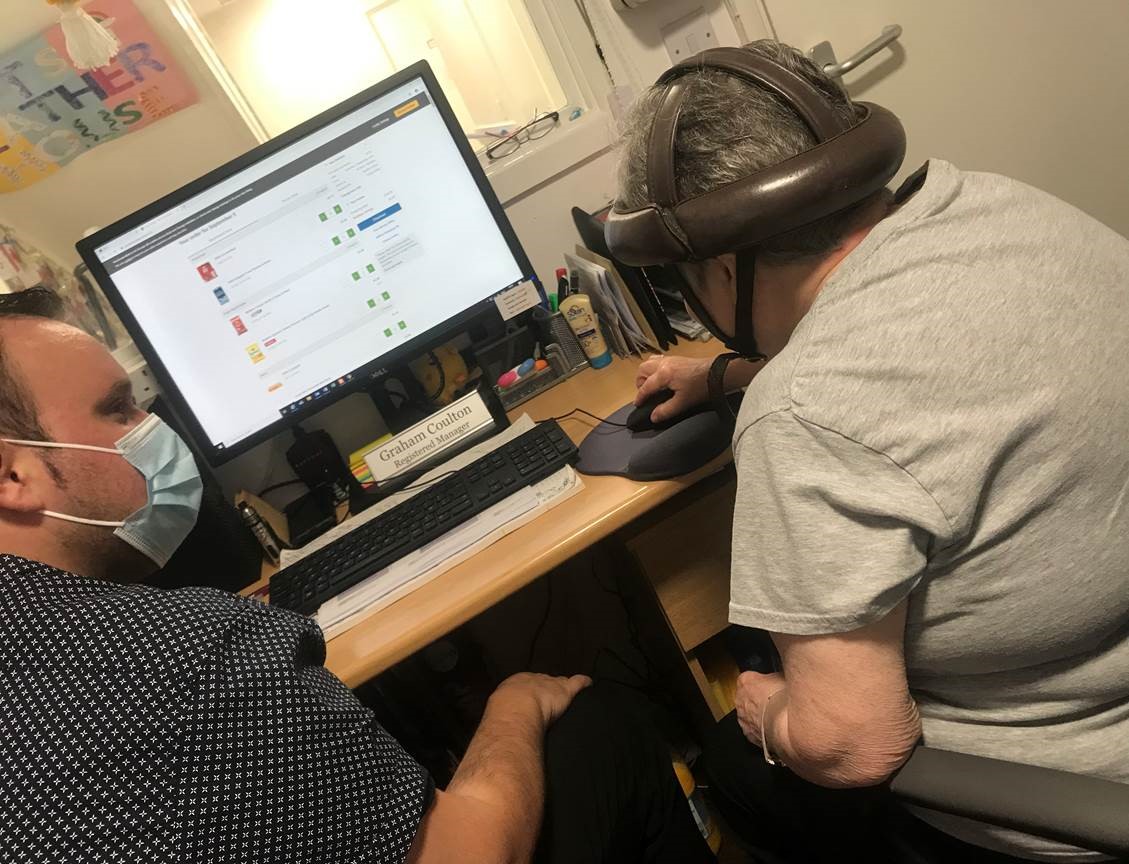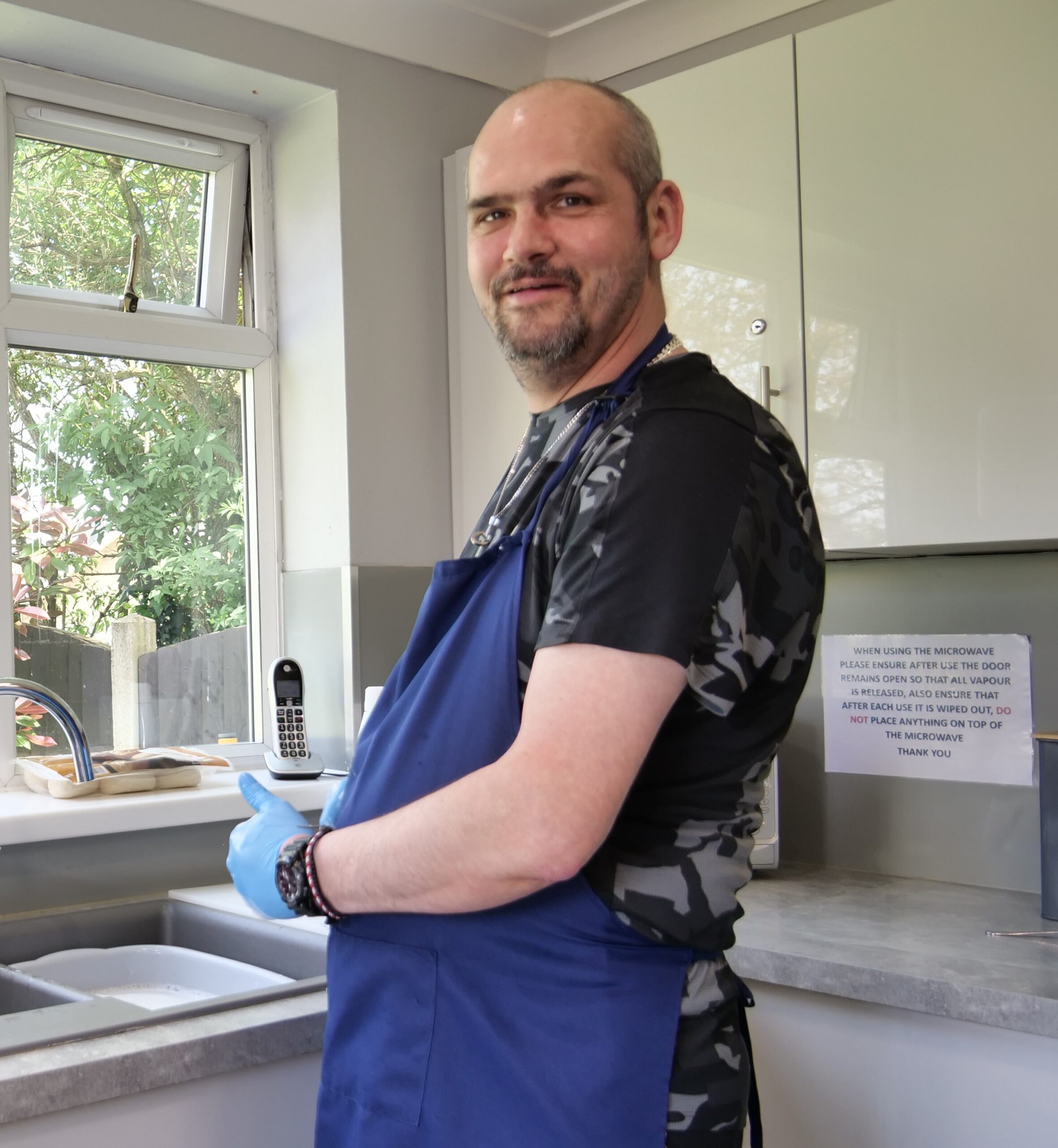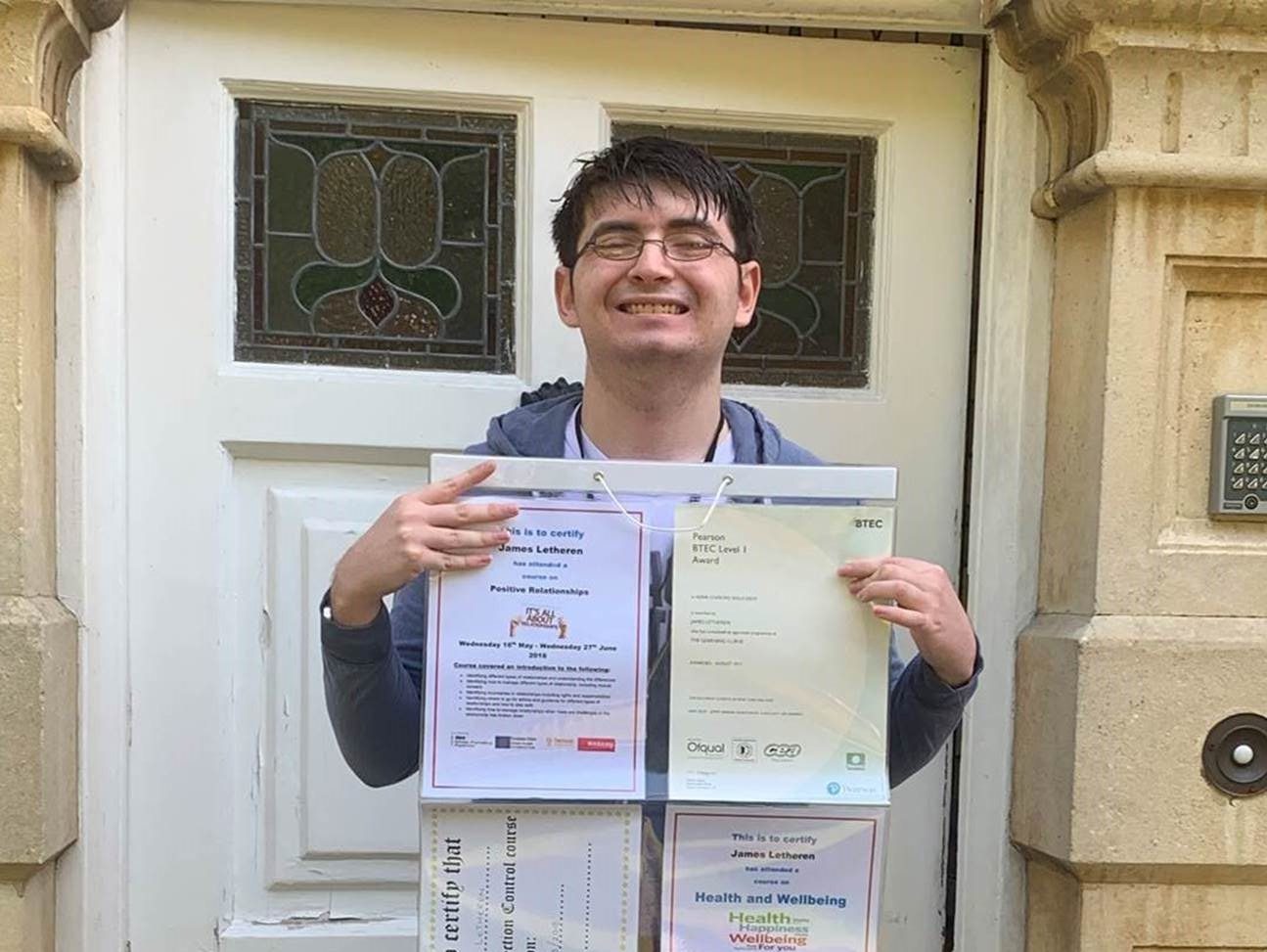Transforming Sue’s way of life for the better
Sue* was diagnosed with learning disabilities along with epilepsy. She grew up living with her mum, dad and brother, Barry. Her auntie Doreen also played a big role in her life.
Life was not always easy for Sue’s* parents due to her complex needs, non-verbal communication and increasingly challenging behaviour. This resulted in Sue* going in for a long stay at a hospital where she spent quite some time.
Moving to our services in the city
After the hospital closed its doors in 1994, Sue* moved into a Voyage Care residential home in London where her life instantly changed for the better.
As soon as Sue* arrived at the home, she did not want to leave! Doreen and Barry along with the support workers began to see a rapid transformation in Sue*. Everyone watched in amazement as she developed as a person and as an individual in her own right.
One of the biggest differences they saw almost immediately was the reduction in Sue’s* challenging behaviours, resulting in arrangements being made for her to go home and visit her Dad every Saturday. Sue’s Dad would be waiting at the door with a big cup of tea and a bag of sweets – she loved it!
Although Sue* had become a happier person since arriving at the home, the support team at were still fully aware of the complex care she required, especially due to her severe epilepsy. They had always been very conscious of this area of support which is essential to Sue’s* health and wellbeing.
Her seizures began to occur every 6-8 weeks, meaning Sue* became a regular visitor to the local hospital. This saw Sue* become more anxious and distressed. It became evident that the rescue medication was not as effective as it once was, and after a prolonged episode of seizures Sue* was admitted to Queens’s hospital earlier this year.
Following this, a meeting took place to discuss the current plan of administering Sheila’s medication. The home manager asked if there was something more suitable available for Sue* to take on a regular basis to possibly minimise the necessity of Sue* requiring medical intervention.
With the full support of Sue’s* family, the medical team at the hospital along with the epilepsy specialist nurse, a change was finally made to Sue*’s daily medication.
Sue* has now been seizure free for a period of 9 months and appears to be more relaxed, with an improvement in her appetite. Her quality of life has increased immensely since the introduction of the new daily medication and Sue’s* family continuously comment on how great the care and support Sue* receives is.
*Some of the details have been changed for confidentiality reasons.

 Care Homes
Care Homes  More success stories
More success stories 




